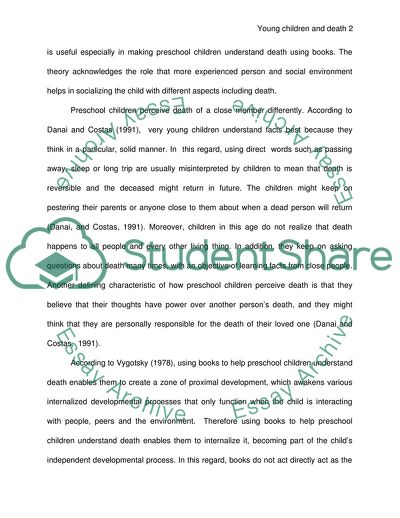Cite this document
(Vygotskys Social, Cultural Theory Essay Example | Topics and Well Written Essays - 1250 words - 1, n.d.)
Vygotskys Social, Cultural Theory Essay Example | Topics and Well Written Essays - 1250 words - 1. https://studentshare.org/sociology/1752557-young-children-and-deathliterature-vgotskys-socio-cultural-theory
Vygotskys Social, Cultural Theory Essay Example | Topics and Well Written Essays - 1250 words - 1. https://studentshare.org/sociology/1752557-young-children-and-deathliterature-vgotskys-socio-cultural-theory
(Vygotskys Social, Cultural Theory Essay Example | Topics and Well Written Essays - 1250 Words - 1)
Vygotskys Social, Cultural Theory Essay Example | Topics and Well Written Essays - 1250 Words - 1. https://studentshare.org/sociology/1752557-young-children-and-deathliterature-vgotskys-socio-cultural-theory.
Vygotskys Social, Cultural Theory Essay Example | Topics and Well Written Essays - 1250 Words - 1. https://studentshare.org/sociology/1752557-young-children-and-deathliterature-vgotskys-socio-cultural-theory.
“Vygotskys Social, Cultural Theory Essay Example | Topics and Well Written Essays - 1250 Words - 1”. https://studentshare.org/sociology/1752557-young-children-and-deathliterature-vgotskys-socio-cultural-theory.


